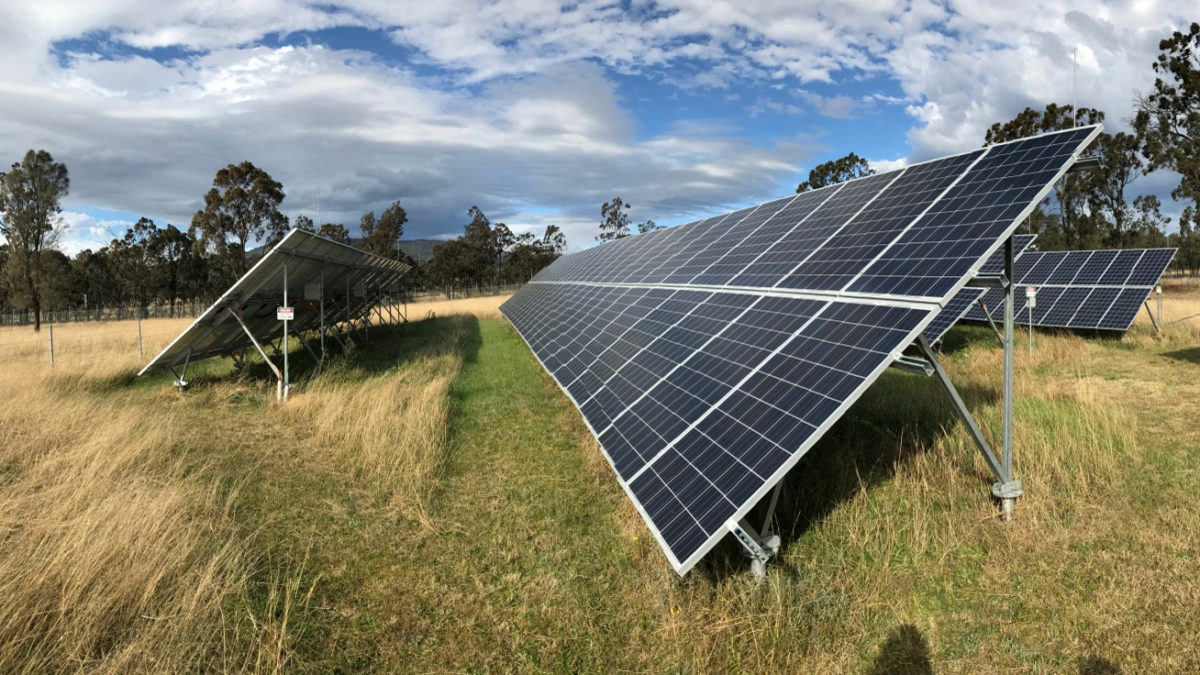The New South Wales (NSW) Department of Planning, Industry and Environment (DPIE) has given a tick of approval to the 125 MW AC (160 MW DC) Maryvale Solar Farm near Wellington. The project is situated in the state’s Central-West Renewable Energy Zone, which could host 3 GW of new generation by mid-2020.
The $188 million solar development is part of the deal between Netherlands-based renewables developer Photon Energy and Chinese PV heavyweight Canadian Solar sealed last year, to codevelop five NSW solar farms with the accumulated capacity of 1.14 GW. Under the agreement, Canadian Solar acquired 51% in five Photon Energy projects, including the 220 MW Gunning, 160 MW Maryvale, the 189 MW Suntop Solar Farm, 200 MW Mumbil/Suntop 2, and the 150 MW Gunnedah solar farms.
According to the project environmental impact statement, the Maryvale Solar Farm will cover an area of 375 hectares and is estimated to consist of up to 450,000 PV panels installed on a single axis tracking system alongside 40 inverter stations supplied by Ingeteam, as a fully containerized solution. It will use an existing Essential Energy 132 kV transmission line and have a new substation installed.
“The Department considered all potential impacts of the project and found it will have minimal impact on the surrounding natural environment and agricultural land,” DPIE’s Executive Director of Energy and Resource Assessments Mike Young said. “This state significant project has been assessed on its merits and the Department is confident it will have real benefits for the local community and NSW.”
Specifically, the project will support up to 150 local jobs over the 12-month construction period and up to ten operational jobs during its 25-year lifetime. It will generate enough energy to power the equivalent of approximately 46,500 homes while avoiding 265,000 tonnes of greenhouse gas emissions each year.
“Maryvale solar farm is within the Central-West Renewable Energy Zone and will add to the growing hub of solar energy projects in the Dubbo area, bringing a fresh boost to the economy, diversifying industry for the region, as well as increasing electricity capacity,” said Young.
The Central-West region is the planned location for Australia’s first coordinated Renewable Energy Zone (REZ) because it benefits from significant existing investment and investor interest, with around 4,500 MW of projects either approved or in the planning system, relatively low build costs, and a strong mix of energy resources. It is expected that the pilot REZ would be worth around $4.4 billion in private sector investment once fully developed, enough new generation capacity to power around 1.3 million homes. This REZ alone is expected to support 450 construction jobs in the local region.
The pilot REZ is part of the Government’s long-term plan to deliver three renewable energy zones in the State’s Central-West, New England and South-West regions, which builds on its NSW Transmission Infrastructure Strategy and supports the implementation of the Australian Energy Market Operator’s Integrated System Plan. As at October 2019, NSW had more than 100 private sector proposals to build large renewable generators. If built, these generators would total 17,700 MW of generation capacity within the state, and inject $24 billion of investment into regional NSW.
This content is protected by copyright and may not be reused. If you want to cooperate with us and would like to reuse some of our content, please contact: editors@pv-magazine.com.









1 comment
By submitting this form you agree to pv magazine using your data for the purposes of publishing your comment.
Your personal data will only be disclosed or otherwise transmitted to third parties for the purposes of spam filtering or if this is necessary for technical maintenance of the website. Any other transfer to third parties will not take place unless this is justified on the basis of applicable data protection regulations or if pv magazine is legally obliged to do so.
You may revoke this consent at any time with effect for the future, in which case your personal data will be deleted immediately. Otherwise, your data will be deleted if pv magazine has processed your request or the purpose of data storage is fulfilled.
Further information on data privacy can be found in our Data Protection Policy.